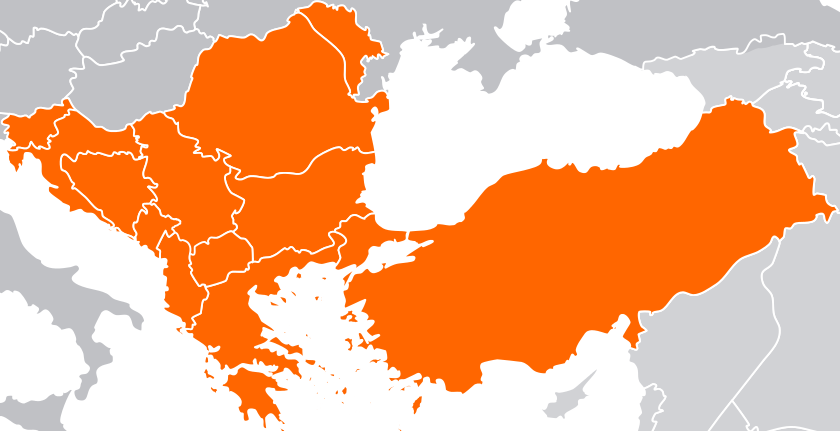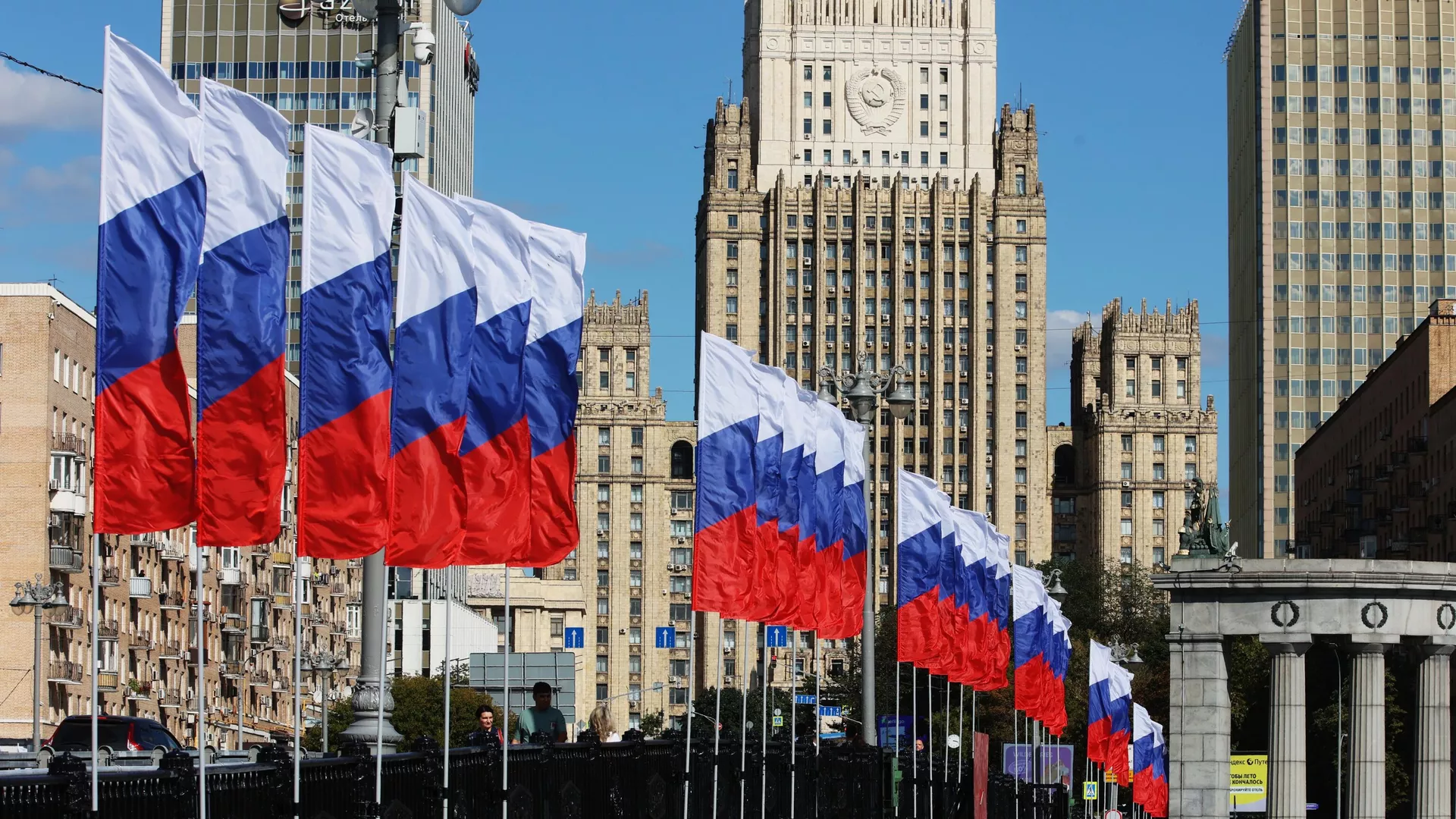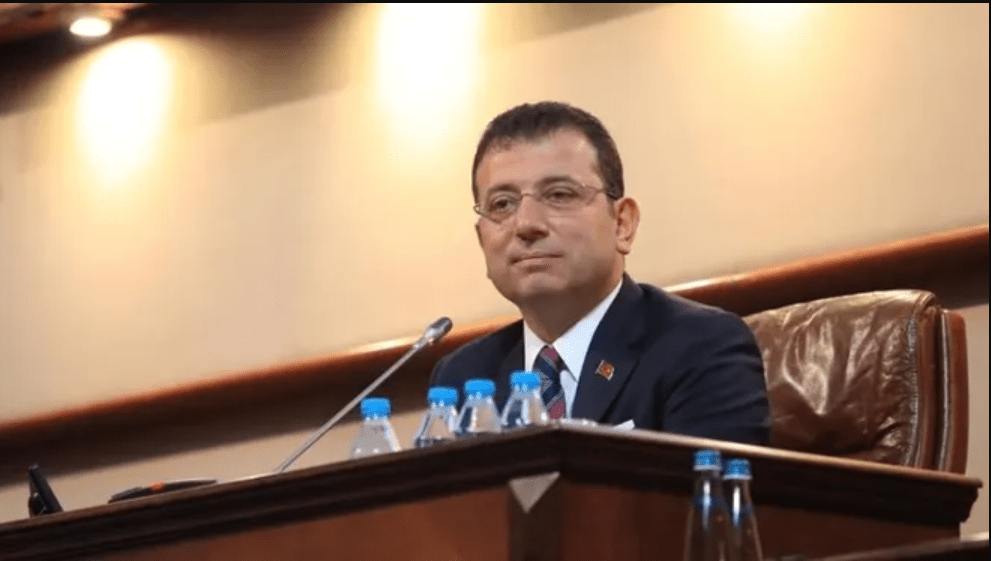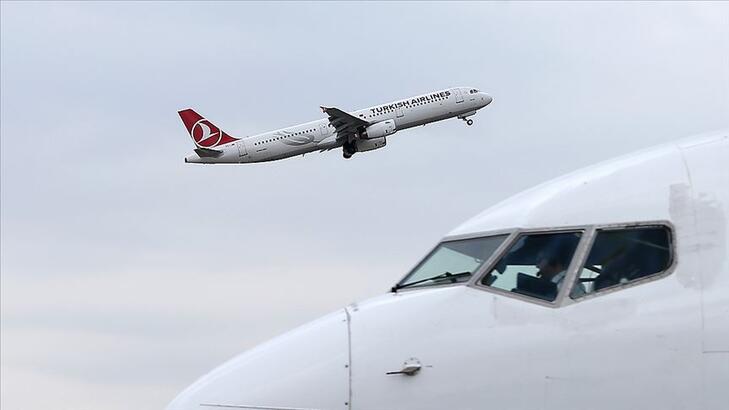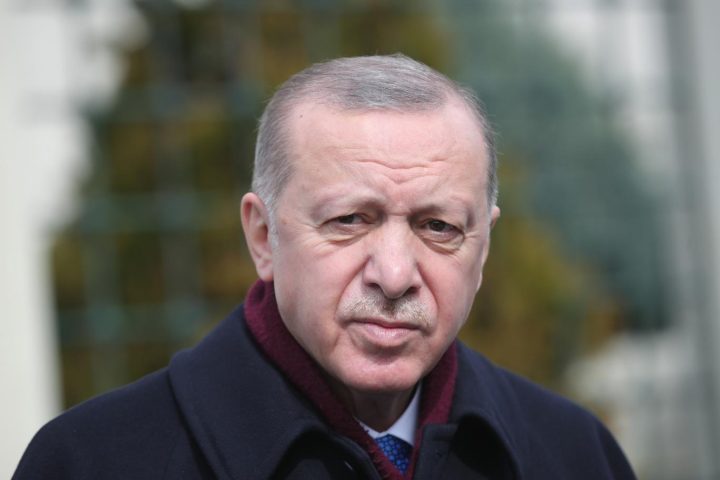In the process of NATO and the EU’s ‘New Balkans Design’, the region is pregnant with geopolitical change. We are in a period when Turkey needs sensitive and active policies in the Balkans with its public diplomacy institutions.
The possibility that NATO’s policies in the Balkans with the EU process will evolve from controlled tension to controlled conflict now depends on Russia’s reactions.
For Putin and Serbian President Aleksandar Vucic, over the last 10 years, preserving the all-round strengthening of Slavic communities in Kosovo, Bosnia, Montenegro, North Macedonia and Bulgaria has been a priority political goal.
On the other hand, in the Balkans, we see that the political conflicts between the US, the EU and the UK are more pronounced on the policies of Serbia (Kosovo, Bosnia, Montenegro).
It was noteworthy that US President Biden emphasized in recent weeks that Russia threatens the Balkan countries.
Biden; “If we pull out and Russia can continue its attacks and overthrow Ukraine, what will happen in the Balkan countries? What will happen from Poland to Hungary?” pointing to the Balkans is not a good omen.
It is always a matter of curiosity how and when the ongoing hot conflict in Ukraine will be reflected in the Balkans.
While the Balkans have been calm for a long time after the 1994 Bosnian war and the 1998 Kosovo war, the December 15, 2022 Northern Mitrovica conflict between Serbia and Kosovo and the Russia-US and EU tensions that started with the Ukraine war bring the risk of hot conflicts in the Balkans to the agenda.
The economic and armament dimensions of Serbia’s relations with Russia, Iran and China, which have developed in recent years, are also destabilizing political tensions.
The course of the Russia-Ukraine war under NATO control, Switzerland’s NATO membership, Western defense organizations in the Balkans are extremely disturbing for Russia.
In the face of these attacks, we see that Putin has long been able to dominate the Slavic societies in the region with political, cultural, religious and economic support through Serbia, the main center of his Balkan policies.
The West’s rivalry with Russia and the fact that it takes place on the faults of Eastern Europe and the Balkan countries naturally cause the region to experience constant controlled tensions.
One should not forget the unfinished business of the Russian state with Europe (Yugoslavia, East Germany trauma).
Although the Israeli-Gaza war has turned the eyes of the world to the Middle East, we see that Russia has not yet had the last word in the Balkans.
In recent weeks, former CIA Director William Burns wrote a piece for Foreign Affairs on “Transforming the CIA in an era of competition”.
Burns begins his article as follows: “As Biden reiterated, the United States today is at the dawn of the Cold War. The United States now faces geopolitical challenges such as China’s rise and Russia’s rematchism.”
“The post-Cold War era ended definitively the moment Russia invaded Ukraine in February 2022,” Burns writes.
While Russia is the most immediate threat, China is a bigger threat in the long run, he says, noting that over the last two years the CIA has reorganized itself to reflect this priority.
In the Balkans, Russia is constantly trying to strengthen its defense lines and hybrid structures in Bosnia, Montenegro, Kosovo, North Macedonia and Bulgaria.
Putin has consistently made it clear that while he supports the EU membership of the countries that were part of the Soviet Union during the Cold War, he sees their NATO membership as risky for his own security and he has never accepted it.
As long as Russia continues to be squeezed by NATO, Putin will continue to support regional instability.
There have been recent conflicts in the history of the EU. Countries like France, the UK and Germany fought each other, but now they have stopped fighting and are acting as a common camp.
Russia’s biggest fear is that if Serbs, Croats and Bosniaks start to live in peace in the EU-NATO process, Russia’s geopolitical future will be turned upside down.
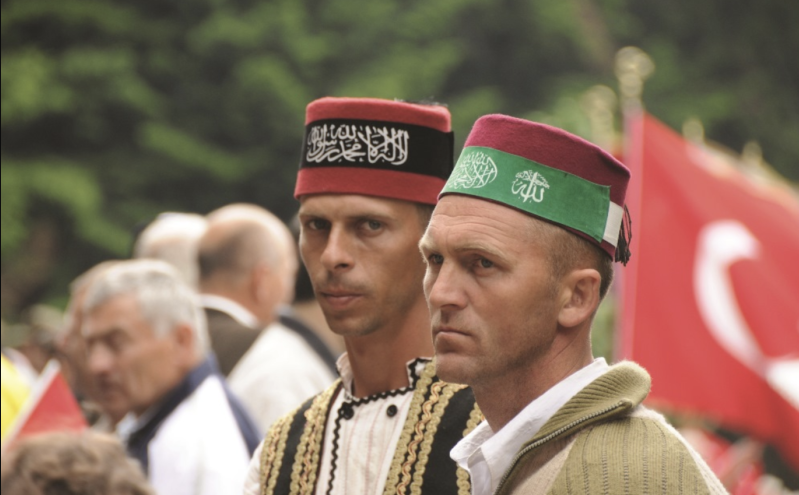
Turkey’s Public Diplomacy Power
In order to be prepared for geopolitical changes in the Balkans, Turkey needs to adopt a strategic approach to public diplomacy.
It is important to be prepared for geopolitical changes in the Balkans because the region has been under the influence of different powers and has been of strategic importance throughout history.
Turkey’s public diplomacy is important to contribute effectively to these changes. Public diplomacy involves communication and influencing activities carried out by a state or an organization to increase understanding, friendship and cooperation between peoples.
Through public diplomacy in the Balkans, Turkey has the power to foster relations with countries in the region while promoting cultural exchanges and building strategic partnerships.
In this context, it is important for Turkey to be prepared for geopolitical changes in the region and to use public diplomacy effectively.
New strategic openings could help Turkey respond more effectively to geopolitical shifts in the Balkans and increase its influence in the region.
In the new Balkans in the EU process, harmonized cooperation between actors of Turkey’s historical power over cognates, co-religionists and other societies is crucial.
The soft power of public diplomacy stands out as an important factor here.
Turkey’s Balkans policy has been quiet and low-profile for the last 7 years.
Minister of Foreign Affairs Mr. Hakan Fidan paid official visits to Albania, Bulgaria and Romania on January 28-31. During the meetings held by Minister Çavuşoğlu, bilateral relations as well as current regional and global developments in various fields such as economy, politics, education, culture, culture and trade were discussed with the leaders of the countries.
Mr. Fidan’s trip to the Balkans (Albania, Romania, Bulgaria) was important in terms of timing.
In his meetings with the President, Prime Ministers, civil society and Turkey’s public diplomacy institutions in the region, it was especially noteworthy that he was accompanied by a large working team.
It was announced that Mr. Fidan will continue his Balkan trips in the coming days.
While Turkey’s Balkan policy is experiencing a low-intensity process after July 15, 2016, we need to read well the opportunities and risks that will arise in the face of the new Balkan geopolitics in the face of the course of the countries in the region marching towards EU mobility and NATO membership.
Foreign Minister Hakan Fidan’s experience as the former head of the National Intelligence Organization (MIT) is a valuable opportunity to lead radical changes in Turkey’s Balkans policy.
Although Turkey has preferred to remain in a stabilizing position in the region since the Balkan Wars of 1912, the global conjunctural climate is now pushing us to be more cautious.
Today, it is not possible for us to remain neutral to the political developments in Bosnia, Kosovo, North Macedonia, Montenegro and Bulgaria.
We cannot ignore the potential and dynamism of Albanian, Bosniak and Roma communities in the process of European integration in the new Balkans.
Balkan Geopolitics is the most important geographical direction of our country’s foreign policy. The biggest responsibility here falls on our Public Diplomacy institutions.
Our public diplomacy institutions working in the Balkans need to prioritize new policies that are blended with historical ties, global local changes and potential realities.
The weak and risky aspect of our Balkans policy, which has been active since 1992, is that the political views of the governments’ bureaucrat preferences have not been able to achieve the desired success on public diplomacy.
It is very important to prioritize national interests in our Balkans policy.
The pressure and manipulation of politics, business and civil society on public diplomacy weakens our Balkan policies.
After the Russian War of 1878-1879 and the Balkan War of 1912, the Ottoman Empire and the Republic of Turkey continued to lose territory and influence in the Balkans.
Today, Balkan geopolitics is about to become fully part of NATO and the European Union (EU).
Today, we are on the eve of a period of weakening ties with the Albanian, Bosniak, Roma and Turkish communities that have been an important part of Turkey’s presence in the region for 700 years.
As our Rumelia-Balkans story transforms into a new “Western Balkans” under the EU umbrella, are we prepared for this change?
The Balkans are experiencing the second major political and social-cultural change after the breakup of the Balkans in the 1990s.
The EU’s and NATO’s Balkans policy momentum suggests that the region will witness significant changes in the next five years.
Turkey’s policy on the Balkans is being carried out sensitively at the level of leaders and the security bureaucracy.
The most important problem of the Muslim Albanian, Bosniak and Turkish communities living in the Balkans is the disregard of the ideology of “unity in language, in thought, in work”, which, as Ismail Gaspıralı expressed 100 years ago, points to holistic policies and cultural deprivation.
This is because there have been serious developments in the Balkans policy of the EU and NATO in the last five years.
Turkey needs to follow up this process on the ground with a special commission and re-coordinate regional dynamics.
It is of great importance to put an end to periodic, temporary and local approaches and to act with the perspective of state wisdom in solving the chronic cultural, political, social and economic problems among the related, cognate and religious communities in the Balkans.
The Balkans policy of Europe, the US, the UK, Russia and China needs to be well read in terms of politics, economy, culture and its dominance.
It would be beneficial for all Turkish institutions and organizations, especially Embassies, to conduct a realistic Balkan analysis and strategic cooperation coordination.
It is observed that the bureaucrats appointed to head the Turkish Public Diplomacy institutions in the Balkans are unable to fulfill their duties properly due to the influence and pressure of politics, which stands out as an important problem.
Relations with the Turkish, Albanian, Bosniak, Torbesh and Rom communities need to be carried out through comprehensive policies.
It is inevitable that the policies of TIKA, Yunus Emre, YTB, Anadolu Agency, Religious Attaché Office and Maarif Schools, which are the values of our Public Diplomacy, should be reviewed and revised every 4 years.
R&D centers need to develop medium and long-term policies for power centers that include all the dynamics of civil society, politics, business people, culture, arts, sports, students, intellectuals and academia, which are the soft power of our public diplomacy in the Balkans.
We are confronted with a political reality in which Germany, the UK and the US are trying to keep the Balkans away from the axis of Russia, China and Turkey by melting them into the European pot.
We have to make good use of our historical experience and potential in the region.
There is also significant strategic value in focusing on the Muslim and Balkan diaspora migrating to Europe.
We live in a world where the attraction of countries with a strong story is much more effective.

